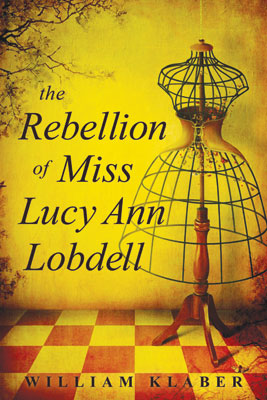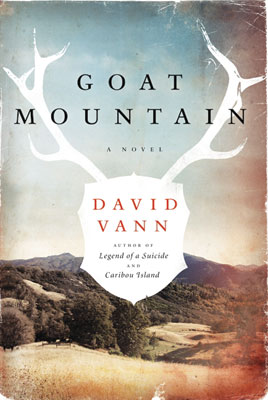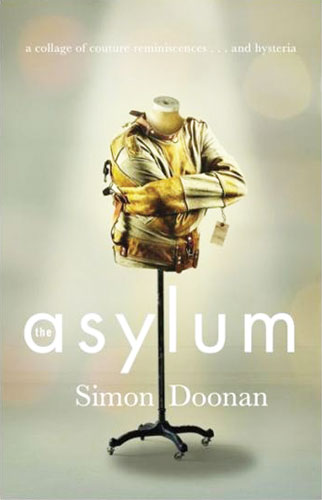We continue our look back at ’13 with a list of the people in North Texas arts and culture who helped define the year

SIMON SAYS | Fashionista Simon Doonan, goofing with husband Jonathan Adler in Adler’s Uptown boutique, wrote 2013’s most delightful memoir, ‘The Asylum’ (see sidebar). (Arnold Wayne Jones/Dallas Voice)
Reading — pfft! Who has time? Who can take hours and hours to actually read a book, especially if it’s not all that good? Why waste that kind of time?
The answer is: A lot of people read. And for this calendar year, these are the books I loved best — and if you didn’t catch them when they came out, you shouldn’t miss them now.
Non-Fiction
 At the top of my list is Pilgrim’s Progress by Tom Kizzia. It starts out with a semi-confusing (but heart-poundingly brilliant) escape by two young women. You’re not sure who they’re running from, or why — but you find out soon enough that their father has sent them scurrying. You’ll also find out how one man set an Alaska community on edge and what happened to him and his very large family. The ending of this book comes all too soon, and it’s truly every bit as stellar as its beginning; I read it more than six months ago, and I’m still in awe…
At the top of my list is Pilgrim’s Progress by Tom Kizzia. It starts out with a semi-confusing (but heart-poundingly brilliant) escape by two young women. You’re not sure who they’re running from, or why — but you find out soon enough that their father has sent them scurrying. You’ll also find out how one man set an Alaska community on edge and what happened to him and his very large family. The ending of this book comes all too soon, and it’s truly every bit as stellar as its beginning; I read it more than six months ago, and I’m still in awe…
Like many people, I kind of went on a JFK-assassination streak of reading this year. There were certainly a lot of books out on the subject, but Dallas 1963 by Bill Minutaglio and Steven L. Davis was my favorite. But that’s not why this book is on this list. It’s here because it answers the question, “Why Dallas?” and in answering, it gives readers a good sense of the time and the country’s attitudes. We’re transported back 50 years in the telling of this story — politically, socially, morally, and beyond. It’s one of those books you could read and then turn around and read again.
It’s easy to think that Twelve Years a Slave by Solomon Northup is a novel. It’s easy to forget that you’re reading words from a man who lived some 150 years ago, that he really was sold into slavery, didn’t see his family for more than a decade, endured life as a wrongly-held man. It’s easy to think it’s all fiction — until Northup’s words not-so-gently remind you that this book is truth. That shook me up many times, and whether or not you’ve seen the movie, this is a don’t-miss book.
Adding The Rebellion of Miss Lucy Ann Lobdell by William Klaber to this list is kind of cheating. That’s because this book is fictional, but is based so closely on the true story of a woman who lived as a man in the 1850s that it feels authentic. That was scandalous, to be sure — but what was even more scandalous to the pioneers who knew her was that she was able to survive a splashy court case and, later, successfully marry another woman. Written as a series of diary entries, this book includes action, adventure, jaw-dropping events, history that’ll blow your mind, and I loved it.
For some reason, I found One Summer: America 1927 by Bill Bryson to be this years’ most relaxing read. Maybe it’s because Bryson meanders through a mere five months of one year in history. Maybe it’s because there’s no rush in this book; it just moves gently from one topic to another to another, telling this story and that one, page after page, and before you know it, this brick of a book (528 pages) is over. Like any great summer, it’s over too soon.
Fiction
 I loved the premise of Astray by Emma Donoghue: Take an object from the past — a picture, or an article of clothing — and imagine what life was like for the owner of that object. This book is a series of short stories, all of them evoking a quiet corner of existence on the periphery of the world. Some of the stories are shocking. Some are warm. Others will make you think, but you’ll like them all.
I loved the premise of Astray by Emma Donoghue: Take an object from the past — a picture, or an article of clothing — and imagine what life was like for the owner of that object. This book is a series of short stories, all of them evoking a quiet corner of existence on the periphery of the world. Some of the stories are shocking. Some are warm. Others will make you think, but you’ll like them all.
You will probably never see Bait by J. Kent Messum on any other list, and that’s too bad. This story of a group of drug-addicted castaways on a sandy island will keep you turning the pages to the end, absolutely needing to find out what happens to them and why they wake up, craving heroin, on a saltwater beach. I don’t dare tell you any more. Just go read the book.
If the first chapter of Goat Mountain by David Vann doesn’t pull you in and make you want to keep reading, then you may need your pulse taken. Told from the point of view of an adult who’s obviously painfully grown-up, it’s the story of an 11-year-old boy and his first real hunting trip with the elders in his life. Suffice it to say that things don’t go so well. This is perhaps this season’s most unsettling psychological thriller, and a definite don’t-even-think-about-missing books.
The Ocean at the End of the Lane by Neil Gaiman is one of those dark, dark fairy tales of which Gaiman is so famous. It’s a novel of a man who somehow gets lost on his way home from a funeral, and he ends up on a side road near where he grew up. He starts to remember the little neighbor girl who promised to keep him safe forever. But, of course, she couldn’t. This is a misty kind of novel with just the right amount of creeposity. I can’t imagine not reading it.
TIE: Orphan Train by Christina Baker Kline and The Storyteller by Jodi Picoult. I couldn’t decide between them, so you get to learn about both.
Orphan Train is based on real events in American history, in which New York City orphans were shipped across the U.S. and Canada in search for new families. In this case, the tale is about an elderly woman who has a secret, and the juvenile delinquent girl who learns what it is.
In The Storyteller, a loner befriends an elderly man who tells her about his past — and it’s horrifying … but not nearly as horrifying as what he asks her to do. These are two novels that will pull you in quick and keep you on your seat. They’re books you’ll want to share with everybody you know.
There you have it: A bunch of books to fill your bag and your days for awhile. Look for them, or ask your favorite bookseller or librarian for more great ideas.
Season’s readings!
— Terri Schlichenmeyer
…………………
Gayest read of 2013: ‘The Asylum’
 Our book critic has her opinions about literature, which I respect, but for my money, there have been few books as entertaining — ever — as Simon Doonan’s latest collection of dishy stories, The Asylum. Part fashion memoir, part sociological bitchfest (wait, aren’t those the same?!?!), Doonan walks through his adventures in the rag trade, from the great enigmatic designers to the insufferable pretenders to the boisterous unionized window-dressers.
Our book critic has her opinions about literature, which I respect, but for my money, there have been few books as entertaining — ever — as Simon Doonan’s latest collection of dishy stories, The Asylum. Part fashion memoir, part sociological bitchfest (wait, aren’t those the same?!?!), Doonan walks through his adventures in the rag trade, from the great enigmatic designers to the insufferable pretenders to the boisterous unionized window-dressers.
He starts off recounting a storied family history of mental illness, acknowledging that his own sanity is not something he takes for granted on a daily basis, but then paints a world that makes a madhouse look sensible, from well-heeled fashionistas who enjoy relationships with rough trade thugs (he calls out designers by name who insist on dating gay porn actors) to enigmatic designers who draw inspiration from hooker chic. And he does so with a pithy literary flamboyance that captures the imagination and tickles the funny bone.
“Fashion after all these years has become an all-inclusive goulash of trends and style,” he writes, “Bohemian, faux-hemian, sexy secretary, manga, goth, dykey assassin, glamazon, and, yes, waif are all available for your declaration.”
Such frankness about his chosen field certainly puts him on the fringe of what he should say, but the way he says it makes you crave it all the more.
Doonan’s contributions to fashion are palpable, but he might just as well have succeeded in a career of letters. Lucky for us he dabbles with the air of a philosopher-king. And readers are all the better for it.
This article appeared in the Dallas Voice print edition January 3, 2014.

